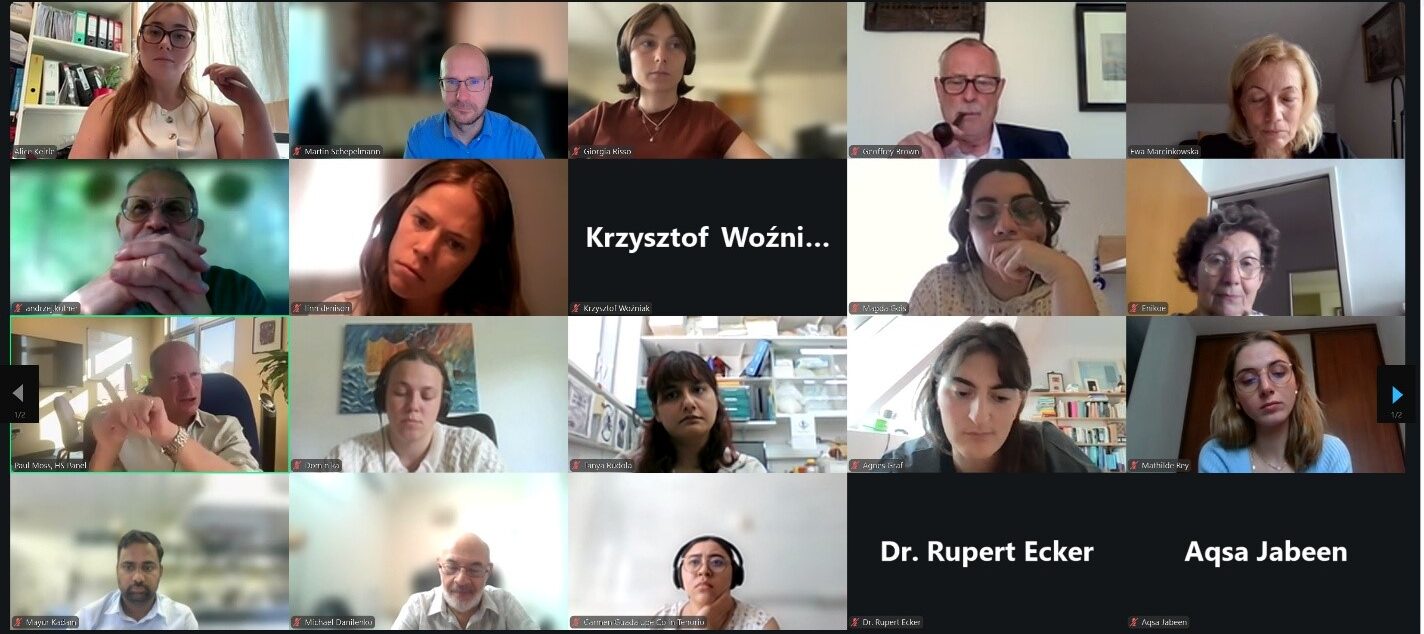Day 1 - Topic: Biology of Cancer - September 22nd
The second MSCA-Doctoral Network eRaDicate school was held online and centered on the biology of cancer. The program opened with a welcome address by Network Coordinator Martin Schepelmann from the Medical University of Vienna, setting the stage for a day rich in scientific exchange. The DCs were introduced to diverse perspectives on cancer biology, with talks covering natural barriers, immunotherapy, and in vivo models, delivered by Geoffrey Brown and Paul Moss (University of Birmingham, Ewa Marcinkowska (University of Wrocław), Enikö Kallay (Medical University of Vienna), and Yishai Ofran (Hebrew University Jerusalem). The day concluded with a keynote lecture on oncogenesis by John Dick (University of Toronto) and an exploration of drug discovery by Waldemar Priebe (MD Anderson Cancer Center).
Day 2 - Topic: Basic and Advanced Research Techniques - September 23rd
The second day of our school was all about research techniques and their possible applications. The talks by Azam Azimi and Achala Fernando, both from Queensland University of Brisbane, and Olaf Merkel from Medical University of Vienna discussed the fascinating world of transcriptomic approaches. Reflecting the broad spectrum of methodologies in the field, the second block of talks highlighted Image Analysis, Crystallochemistry, Cell Culture, as well as Metastasis and Tissue Repair. These were presented by Rupert Ecker (TissueGnostics GmbH), Krzysztof Woźniak (University of Warsaw), Roman Perez-Fernandez (University of Santiago de Compostela) and Uwe Ritter (University of Regensburg), respectively.
Day 3 - Topic: Learn to teach - September 24th
The third and final day of the MSCA-Doctoral Network eRaDicate school was dedicated to the art of teaching. Each of the 11 DCs had prepared a mini-lecture on a specific topic in advance and presented it to the group. The topics covered ranged from HPLC and Xenograft Mouse Models to 3D Cell Culture and Database Analysis.
Through this second school, the 11 DCs were able to gain valuable insights into a variety of research topics and techniques, as well as further strengthen their international collaboration.

